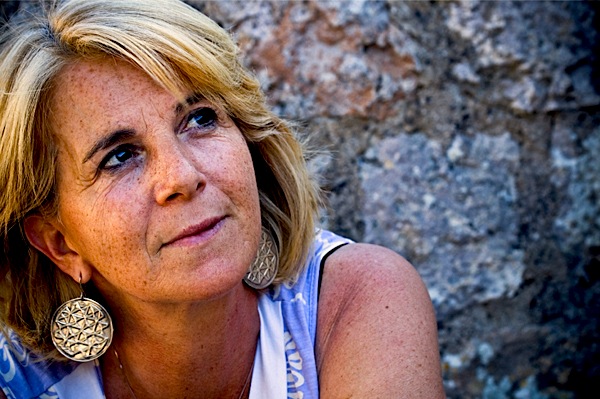
“When we can no longer change a situation, we are challenged to change ourselves.” ~Viktor Frankl
Every year, March 13th is difficult for me. This year, I marked the day with a long hike in the woods near my house and an extra-long hug for my wife, Kathleen. My sisters and I called each other and just said his name out loud. Wherever he is, we want him to know he is gone but not forgotten.
March 13th would have been my brother Jimmy’s 64th birthday. He only made it to 26.
But March 13th is also a time to reflect on what Jimmy meant to me, because although his death was a tragic event, it inspired me to choose a better life.
April 23rd, 1975. A day that will be in my consciousness as long as I breathe.
It was my sister Elizabeth’s 17th birthday and the day that my brother Jimmy, whom I worshipped, died.
I was 11; Jimmy (as I said) was 26. My other older brother Robert (I am the youngest of eight) broke the news to me and my three other closest siblings, Michael, Madeleine, and Elizabeth.
Robert told us and then held me in his arms as I screamed, “That’s not true! Jimmy can’t die! It’s a mistake!”
But it wasn’t. He was gone, and my life changed that day forever.
This devastating change was not my choice, but what I did next was. It was always my brother’s dream that his seven other siblings would escape our abusive father. I knew that, to honor Jimmy, I would never go back home.
My mission from that day forward was to grow up and take control of my life. In the darkest moments—fighting with my foster parents, for example—I would say to myself, “Stay strong for Jimmy.”
My path was far from smoothly paved; many bumps lay ahead. But I knew at that early age that whatever the universe threw at me, I could at the very least control my reaction and my journey forward, out of darkness into light.
We choose to quit jobs, get married, adopt an animal, but of course there are many life events we don’t choose—a divorce, an accidental pregnancy, or the death of a loved one. Yet we can still choose how we deal with and react to these occurrences in our lives.
During tough times, our emotions run the gamut: denial, anger, fury, despair, numbness, isolation, desperation. In order to heal, we must feel. But we have a say in what we do with our feelings.
There are no right or wrong reactions, only what serves us and what doesn’t.
It may help you to be angry and express your rage; it may help to be alone for some time. What is crucial when moving through a crisis is maintaining self-awareness.
Check in with yourself daily, perhaps through meditation or journaling, and ask yourself: Where am I today? Is this helping me? What might be the next phase of this transition?
While we have to relinquish control over the circumstances, we can still maintain our connection to ourselves. We can work with this knowledge, to paraphrase Victor Frankl, to face the challenge of changing ourselves.
“Change” has become a dirty word in today’s world; advertisers avoid it because consumers associate the word with challenge and difficulty.
But whether we like it doesn’t really matter—life-altering events will change us, in one way or another. Instead of tuning out to avoid the pain, dealing with and even embracing tragedy and its consequences gives us an active role in guiding our own change and growth.
Transformation is all around us. Transitions are the birthing pains, alternately exhilarating and difficult, that can bring wondrous, challenging, beautiful changes into our lives.
What change are you dealing with now, and how are you responding to it?
Photo here
About Laura Fenamore
Laura's Body Image Mastery programs are celebrated by thousands of women who have released their excess weight and reclaimed their self-esteem. She's chronicled her own weight loss journey in her book, Weightless: The Be Good To Yourself Diet. Laura is a frequent contributor to First for Women, Ladies Home Journal, and the Dr. Pat Show. Learn more at OnePinky.com.












 Though I run this site, it is not mine. It's ours. It's not about me. It's about us. Your stories and your wisdom are just as meaningful as mine.
Though I run this site, it is not mine. It's ours. It's not about me. It's about us. Your stories and your wisdom are just as meaningful as mine.
Great post. “There is no wrong or right reactions, only what serves us and what doesn’t.” Love that!
thank you beautiful ones for sharing your truths. honored to be part of this gorgeous community.
love laura fenamore
http://www.OnePinky.com
After taking care of my abusive and difficult mother, the reality of what she told me she did slowly sunk in. My sizeable inheirtance was placed in the hands of oldest abusive brother. I fought this by asking my small family to break the will/trust. They refused. I was taken to court, a judge ruled & upheld my mother’s and brother’s actions. It’s an unjust, unfair, final insane actions of a unhealthy mother and two brothers. What I get is that I used my energy and money to heal myself. My mother did not ever get to heal her wounds. Nor have my brothers. I have many many blessings and freedom because of the wounds. I did not see the light until I saw and embraced the darkness. I am moving on in a difficult situation. My teachers/friends are amazingly supportive, my rocks! (My brothers get their inheirtance outright. I am sane and in my late fifties. I have a master’s in social work and a vocational degree in psych nursing.)
My Dad only put my brothers name on the life insurance…. I feel you.
I’m 26. My Dad passed four months ago. At 19 my mom died suddenly. I cope by going to grief counseling, working through my rage and moving me towards a more mindful lifestyle. Now is all there is.
((HUG!)) I pray you find that place of peace, and freedom from suffering! 🙂
Very courageous story, and a beautiful perspective on adversity/challenges in life! Thank you for sharing your experience, and insight! 🙂
You are so right it is about choice. And what an amazing thing to choose as an 11 year old. Thank you for sharing this really personal story
Today I found out that my father-in-law only has a few weeks to live. My mother-in-law called me at work and request I tell my husband because she couldn’t bring herself to tell him. I was so shocked with the news and I cried at work. My colleagues drove me home. I started to criticize myself for not putting on a face at the office or at least excusing myself for the day. Your article couldn’t have been more perfectly timed for me. I am now not ashamed for breaking down. For once, I actually allowed myself to feel pain and be vulnerable around others, rather than stifling it and acting like everything is the same. Truth be told, the good I took from today is that my colleagues are very supportive compassionate people – that is something I am most grateful for.
Hi Laura,
Reading
your story and how you dealt with the loss of your brother actually made me
teary… I’ve been struggling with some unexpected changes in my life that
overwhelm me and at times I feel as if I’m losing control. The determination with
which you got through your personal tragedy and still relive it every year is
very touching, and gives me strength to manage the things in my life that I
can’t control!
Pooja’s website Pick Your Goals (http://www.pickyourgoals.com) has helped me during my worst times and I’m really glad I found yours at her recommendation:)
A great piece – and I agree with your advice to “check in with yourself daily, perhaps through meditation or journaling,
and ask yourself: Where am I today?” I journal, I meditate, and I practice speaking my truth .. and the more I practice being in the here and now, and not arguing against what is, the more I am able to learn and grow from my ever-changing experiences .. and the deeper is my connection with myself and with others .. namaste x
Hi Laura. Wonderful blog post. I wrote about a similar topic on a recent post for my blog, Shanti Pax: http://shantipax.com/2013/07/03/doing-the-best-with-what-life-hands-you/. But it wasn’t my story, it was a dear friend who was kidnapped by insurgents in Rwanda, shot, and lost his leg. But his attitude to such tragedy was remarkable, saying that “tragic events are only life altering if you let them by.” Your story is special is that you were so young, but I love how you say “there’s no right action or wrong action, only what serves us and what doesn’t.” That’s brilliant.
Hi Laura, thank you for your post.
You’re right. One day, I would have to face death some how. No body on earth is immune to it.
Thanks for waking me up.